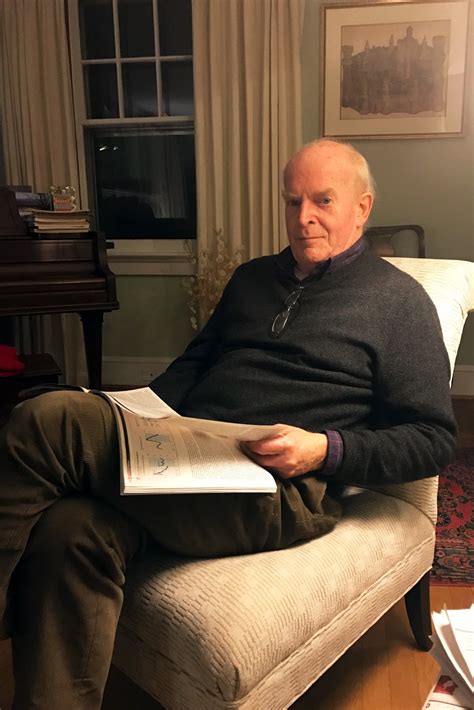A Quote by Angus Deaton
Globalisation, for me, seems to be not first-order harm, and I find it very hard not to think about the billion people who have been dragged out of poverty as a result.
Related Quotes
I am very annoyed about this issue. Why can’t it be a choice? Why is that any less legitimate? It seems we’re just ceding this point to bigots who are demanding it, and I don’t think that they should define the terms of the debate. I also feel like people think I was walking around in a cloud and didn’t realize I was gay, which I find really offensive. I find it offensive to me, but I also find it offensive to all the men I’ve been out with.
While I do not think it was so intended I have always been of the opinion that this turned out to be much the best for me. I had no national experience. What I have ever been able to do has been the result of first learning how to do it. I am not gifted with intuition. I need not only hard work but experience to be ready to solve problems. The Presidents who have gone to Washington without first having held some national office have been at great disadvantage.
What I did not know yet about hunger, but would find out over the next twenty-one years, was that brilliant theorists of economics do not find it worthwhile to spend time discussing issues of poverty and hunger. They believe that these will be resolved when general economic prosperity increases. These economists spend all their talents detailing the process of development and prosperity, but rarely reflect on the origin and development of poverty and hunger. A a result, poverty continues.
Today there are a huge number of think tanks working on poverty-related issues; there are books written on the topic; and university centers being created to study poverty. But, at the same time, the media has a terribly hard time with this issue; it's very hard to convince editors and publishers to devote resources to complex investigations of the lives of America's poor. And, as a result, too often poverty is portrayed in stereotypes, in sound bites, in a few pat images rather than in its full Technicolor complexity and diversity.
When I was about 15 I had already been recording on my four track in my room, but I couldn't find anyone in my town to be in a band with me. I was in a band very briefly with a bunch of guys and they kicked me out because they wanted to play grindcore. I think they didn't think I could tread hard enough or something. So I started playing solo.
...the total number of galaxies in the universe seems to be in the region of ten billion, and that each of them has about a hundred billion stars the size of the sun. These numbers are so absurd that I strangely find myself in a good mood. It's all so immense. I think Paul feels a bit like this as well. There is so little I can do to make a difference. It is liberating.
Globalization and technical change are the guarantee of our future prosperity. And reversing on that will not only make things worse, but it will make things worse for a very large number of people around the world who have benefitted - people in China and India who have been dragged out of the most awful poverty.
Most poverty and suffering - whether in a country, a family or a person - flows from disorganization. A stable social order is an artificial accomplishment, the result of an accumulation of habits, hectoring, moral stricture and physical coercion. Once order is dissolved, it takes hard measures to restore it
Inevitably, people tell me that poor folks are lazy or unintelligent, that they are somehow deserving of their poverty. However, if you begin to look at the sociological literature on poverty, a more complex picture emerges. Poverty and unemployment are part and parcel of our economic order. Without them, capitalism would cease to function effectively, and in order to continue to function, the system itself must produce poverty and an army of underemployed or unemployed people.
The Second Rule is that the greatest harm can result from the best intentions. It sounds a paradox, but kindness and good intentions can be an insidious path to destruction. Sometimes doing what seems right is wrong, and can cause harm. The only counter to it is knowledge, wisdom, forethought, and understanding the First Rule. Even then, that is not always enough.
Pope Francis emphatically does not buy the argument that poverty can be alleviated by the 'trickle down' effects of wealth creation. He is deaf to arguments that the global economy has brought a billion people out of poverty. He is convinced, in short, that the best and only way to expel poverty is fairer distribution of the world's goods.
Well, method is, it seems to me, a natural growth out of a need, and from a need the modern artist has found new ways of expressing the world about him. I happen to find ways that are different from the usual techniques, which seems a little strange at the moment, but I don't think there's anything very different about it. I paint on the floor and this isn't unusual - the Orientals did that.



































